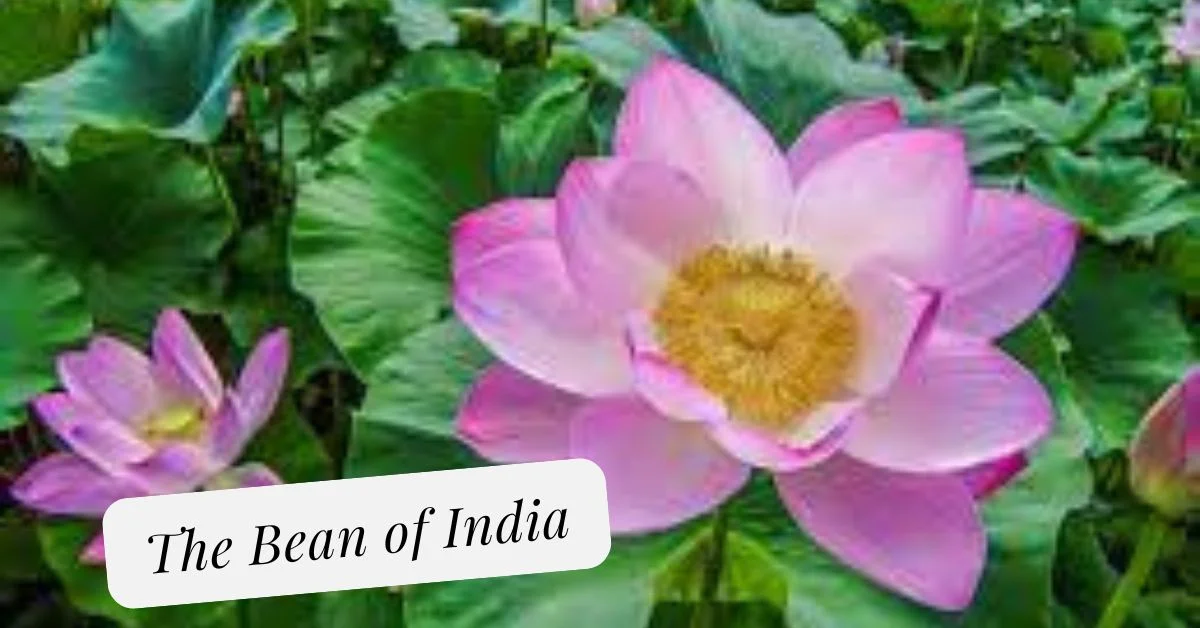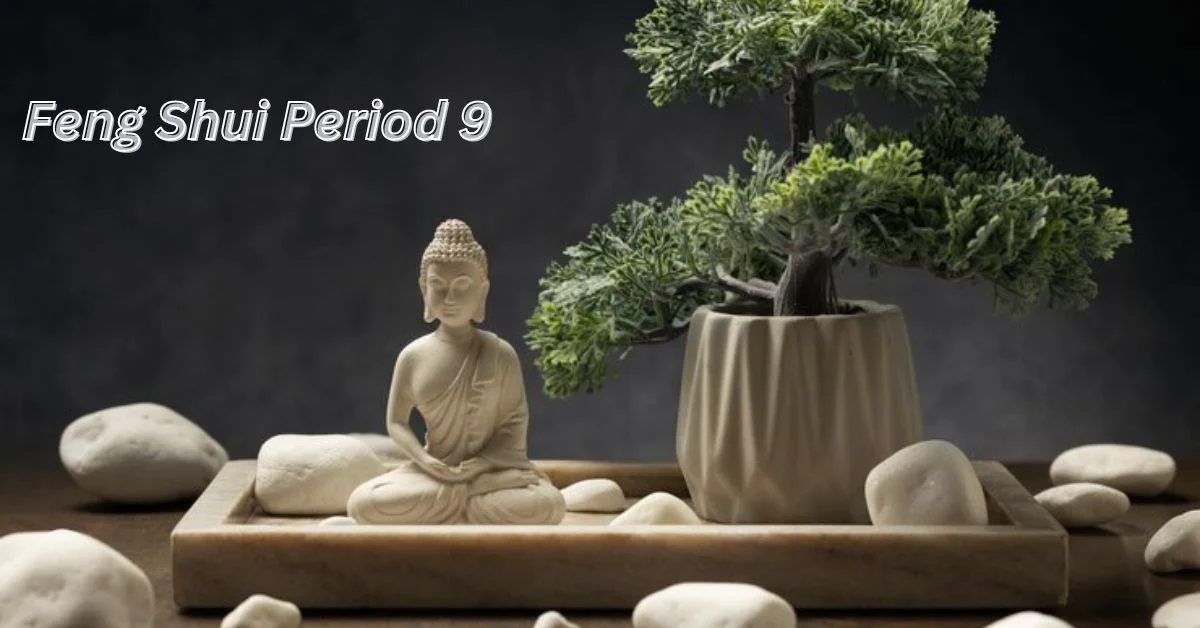Guide
The Bean of India: Unveiling the Secrets of the Sacred Lotus

Introduction
The sacred lotus, known colloquially as the “Bean of India,” is not just a beautiful plant but a symbol steeped in history and cultural significance. As we explore the many facets of this remarkable plant, we’ll uncover why it has captivated people across centuries and continents. From its spiritual symbolism to its unique botanical characteristics, the sacred lotus is a true marvel of nature.
The Sacred Lotus: Botanical Basics
What is the Sacred Lotus?
The sacred lotus, scientifically known as Nelumbo nucifera, is a stunning aquatic plant renowned for its large, fragrant flowers and broad leaves. It is often confused with the water lily, but the two are distinct. The lotus’s most recognizable feature is its ability to rise above muddy waters, symbolizing purity and resilience.
Distinguishing Features from the Water Lily
Although both the lotus and the water lily float on water, they differ significantly. The sacred lotus has a unique seed pod and flower structure, and its leaves and flowers rise above the water’s surface. In contrast, water lilies typically have their leaves and flowers floating on the surface.
Habitat and Growth Conditions
Native to the tropical regions of Asia and Queensland, Australia, the sacred lotus thrives in warm, shallow water. It grows best in nutrient-rich ponds or slow-moving rivers, where its roots can anchor in the sediment while its leaves and blooms float above.
Historical and Cultural Significance
Ancient Uses and Symbolism in India
In ancient India, the Bean of India, known as the sacred lotus, was highly revered for its stunning beauty and profound spiritual meaning. Frequently depicted in art and mythology, it symbolized purity, rebirth, and divine beauty. This revered flower was closely associated with Hindu deities such as Vishnu and Lakshmi, highlighting its importance in spiritual and cultural practices.
The Lotus in Religious Contexts
In addition to its significance in Hinduism, the Bean of India also plays a crucial role in Buddhism. Here, it represents enlightenment and the triumph over life’s obstacles. The lotus’s unique ability to rise pristine from muddy waters serves as a powerful metaphor for spiritual growth and purity.
The Role of the Lotus in Asian Art and Culture
Across various Asian cultures, the Bean of India has been a prominent motif in art, literature, and architecture. It symbolizes themes of beauty, resilience, and spiritual awakening, solidifying its status as a significant cultural icon.
Botanical Characteristics
Physical Description
The sacred lotus is characterized by its large, rounded leaves and vibrant flowers that can range from pink to white. The plant’s seed pod is a distinctive feature, with numerous compartments holding seeds that can remain viable for centuries.
The Lifecycle of the Lotus
The lifecycle of the sacred lotus includes several stages: germination, growth, flowering, and seed production. Each stage is carefully adapted to its aquatic environment, ensuring the plant’s survival and reproduction.
How Lotus Plants Grow and Reproduce
Lotus plants reproduce through both seeds and vegetative means. The seeds, often called “lotus beans,” can remain dormant for years before germinating under the right conditions. Vegetative reproduction occurs through the plant’s rhizomes, which can sprout new plants.
The Bean of India: A Deep Dive into Its Seeds
Historical Germination Records
The sacred lotus seeds are remarkable for their longevity. The oldest known germination of a lotus seed was reported in 1994, when a seed found in northeastern China sprouted after being dormant for 1,300 years.
Longevity and Viability of Lotus Seeds
Lotus seeds are renowned for their durability. Even after centuries, they retain the ability to germinate under favorable conditions, demonstrating the plant’s remarkable resilience and adaptability.
The Oldest Known Lotus Seed
The 1,300-year-old seed from China is a testament to the lotus’s extraordinary lifespan. This seed’s successful germination offers insights into the plant’s evolutionary strategies and survival mechanisms.
Cultural and Spiritual Impact
Symbolism in Hinduism and Buddhism
In Hinduism and Buddhism, the lotus symbolizes purity and spiritual enlightenment. Its ability to bloom beautifully from muddy waters is seen as a metaphor for overcoming life’s difficulties and achieving spiritual growth.
The Lotus as a Symbol of Purity and Enlightenment
The lotus’s pristine appearance and its emergence from the muck symbolize purity and enlightenment. This symbolism is central to many spiritual practices and teachings, reflecting the journey from ignorance to knowledge.
The Lotus in Modern Spiritual Practices
Today, the lotus continues to inspire modern spiritual practices and philosophies. It serves as a powerful symbol of personal transformation and spiritual awakening in various contemporary spiritual traditions.
Uses and Applications of the Sacred Lotus
Medicinal and Therapeutic Uses
The sacred lotus has been used in traditional medicine for its various health benefits. Its roots, seeds, and leaves are used in remedies for ailments ranging from digestive issues to skin conditions.
Culinary Applications
In many Asian cuisines, lotus roots and seeds are used in a variety of dishes. Lotus root, known for its crunchy texture and mild flavor, is a popular ingredient in soups, salads, and stir-fries.
Ornamental and Aesthetic Uses
The lotus’s beauty makes it a popular choice for ornamental purposes. It is often used in garden designs, water features, and floral arrangements, adding a touch of elegance and tranquility to any setting.
Challenges in Cultivation
Common Issues and Solutions
Cultivating sacred lotus can present challenges, such as pests, diseases, and water quality issues. Effective management practices, including regular maintenance and monitoring, can help ensure healthy growth.
Environmental Factors Affecting Growth
The growth of lotus plants is influenced by environmental factors such as water temperature, nutrient levels, and light exposure. Ensuring optimal conditions can enhance the plant’s health and productivity.
Conservation Efforts for Lotus Plants
Efforts to conserve and protect lotus habitats are essential for sustaining this remarkable plant. Conservation programs focus on preserving natural habitats and promoting sustainable cultivation practices.
Case Studies and Success Stories
Successful Cultivation Examples
Several case studies highlight successful lotus cultivation practices. These examples demonstrate innovative techniques and strategies for growing and maintaining healthy lotus plants.
Innovations in Lotus Farming
Advancements in lotus farming include the development of new cultivation methods and technologies. These innovations aim to improve yield, enhance plant health, and support sustainable practices.
Conclusion
The sacred lotus, or “Bean of India,” is a plant of immense beauty and significance. Its historical, cultural, and botanical attributes make it a fascinating subject of study and admiration. Whether through its spiritual symbolism or practical applications, the lotus continues to captivate and inspire people around the world.
FAQs
What makes the sacred lotus different from other aquatic plants?
The sacred lotus is distinct for its ability to rise above muddy water and its long-lasting seeds. Unlike many aquatic plants, it has a unique seed pod and a strong cultural and spiritual significance.
How long can lotus seeds remain viable?
Lotus seeds can remain viable for hundreds, even thousands, of years. The oldest known seed germinated after 1,300 years of dormancy.
Why is the lotus so important in Hindu and Buddhist traditions?
In Hinduism and Buddhism, the lotus symbolizes purity, enlightenment, and rebirth. It represents the spiritual journey from the murky waters of ignorance to the clarity of enlightenment.
What are some modern uses of the sacred lotus?
Modern uses of the sacred lotus include medicinal applications, culinary ingredients, and ornamental purposes. Its roots, seeds, and leaves are utilized in various ways across cultures.
How can I start cultivating lotus plants at home?
To cultivate lotus plants at home, you need a suitable water garden or pond, nutrient-rich soil, and proper care. Start with healthy seeds or tubers and ensure optimal growing conditions for successful cultivation.
Guide
How Feng Shui Period 9 Will Transform Your Life in 2024

Introduction
Feng Shui is more than just arranging furniture; it’s an ancient Chinese practice that harmonizes individuals with their environment. As we transition into Feng Shui Period 9, which spans from 2024 to 2044, understanding and applying its principles can significantly impact your life. This article will guide you through what Feng Shui Period 9 is, its significance, and how you can align your life and surroundings to benefit from this new era.
What is Feng Shui Period 9?
Feng Shui operates on a 180-year cycle divided into nine periods, each lasting 20 years. Period 9, starting in 2024, is associated with the element of Fire and the Li Trigram, representing illumination, fame, and the middle-aged woman. This period is expected to bring about transformations in technology, spiritual growth, and societal structures.
The Element of Fire in Period 9
Fire, the dominant element of Period 9, symbolizes energy, passion, and transformation. It can bring warmth and light but can also burn if not properly controlled. Understanding how to manage this fiery energy in your home and life is crucial for harnessing its positive aspects.
The Impact of Feng Shui Period 9 on Different Aspects of Life
Feng Shui Period 9 will influence various facets of life, including personal relationships, career, health, and wealth. Here’s how you can prepare for and thrive in this new era.
1. Career and Business
The fire energy of Period 9 encourages innovation, creativity, and leadership. This is the time to embrace new technologies, start new ventures, and take bold steps in your career. Businesses that focus on digital transformation, renewable energy, and wellness will likely thrive.
- Tip: To enhance career success, activate the South sector of your home or office, which corresponds with fame and recognition. Decorate this area with elements like candles, bright lights, and red accents.
2. Personal Relationships
Period 9 is closely related to the Li Trigram, which signifies clarity and vision. This energy will encourage more open communication and deeper connections in relationships. It’s a great time to strengthen bonds with loved ones and resolve lingering conflicts.
- Tip: To enhance relationships, focus on the Southwest sector of your home, associated with love and marriage. Incorporate earth elements like crystals and ceramic items to balance the energy.
3. Health and Well-being
The fire element can be both energizing and exhausting. In Period 9, maintaining a balance between activity and rest is essential. Practices like meditation, yoga, and mindful breathing can help you stay grounded and centered.
- Tip: The East sector of your home governs health. Keep this area clutter-free and introduce wood elements like plants to promote vitality and growth.
4. Wealth and Prosperity
With fire as the dominant element, Period 9 will bring opportunities for rapid wealth creation, especially through technology and innovation. However, it also warns against impulsive decisions and excessive risk-taking.
- Tip: Activate the Southeast sector of your home, which is linked to wealth, by using water features like fountains or aquariums. Water nourishes wood, which in turn feeds fire, creating a harmonious cycle of prosperity.
How to Prepare Your Home for Feng Shui Period 9
To fully benefit from Period 9, it’s essential to align your home with its energy. Here are some practical steps to get started:
1. Conduct a Feng Shui Audit
Before making any changes, consider having a Feng Shui audit done by a professional. This will help you identify areas of your home that need attention and how to optimize them for the new period.
2. Activate Key Sectors
As mentioned earlier, focus on the South (fame), Southeast (wealth), Southwest (relationships), and East (health) sectors of your home. Use the appropriate elements—fire, water, earth, and wood—to activate these areas.
3. Declutter and Cleanse
Clutter blocks energy flow and can prevent you from fully benefiting from the positive aspects of Period 9. Regularly declutter your home and cleanse it using sage or other traditional methods to keep the energy vibrant.
4. Incorporate Feng Shui Symbols
Symbols like the Phoenix, which represents rebirth and transformation, can be powerful during Period 9. Place these symbols in key areas of your home to enhance their energy.
Outbound Links to Reputable Sources
For those interested in learning more about Feng Shui and its applications, consider exploring these reputable sources:
- Feng Shui Society – A great resource for understanding the fundamentals of Feng Shui.
- World of Feng Shui – Offers in-depth articles and tips on applying Feng Shui principles in everyday life.
- Feng Shui Nexus – Provides case studies and expert advice on Feng Shui practices.
Conclusion
Feng Shui Period 9 is a transformative time that offers numerous opportunities for growth, prosperity, and fulfillment. By understanding its principles and applying them to your life, you can navigate this period with confidence and success. Whether it’s enhancing your career, strengthening your relationships, or boosting your health, Feng Shui Period 9 provides the tools you need to thrive in the coming years.
Embrace this new era with an open mind and a willingness to adapt, and you’ll find that Feng Shui Period 9 can truly transform your life in 2024 and beyond.
FAQs
What is Feng Shui Period 9?
Feng Shui Period 9 is the ninth phase in the 180-year Feng Shui cycle, spanning from 2024 to 2044. It is associated with the Fire element and the Li Trigram, which symbolize illumination, transformation, and vision.
Why is Feng Shui Period 9 significant?
Period 9 marks a major shift in energy that influences various aspects of life, including career, relationships, health, and wealth. Understanding and aligning with its energy can help you harness opportunities and navigate challenges effectively.
How can I prepare my home for Feng Shui Period 9?
To prepare your home, focus on key sectors such as the South, Southeast, Southwest, and East. Use appropriate elements like fire, water, earth, and wood to activate these areas. Decluttering and conducting a Feng Shui audit can also help align your space with Period 9 energy.
What are the main benefits of aligning with Feng Shui Period 9?
Aligning with Period 9 can lead to enhanced career success, stronger relationships, improved health, and increased wealth. The Fire element’s energy encourages innovation, creativity, and transformation, which can positively impact your life.
What are some common mistakes to avoid during Feng Shui Period 9?
Common mistakes include neglecting to activate key sectors of your home, allowing clutter to accumulate, and misusing elements like fire, which can lead to imbalances. It’s essential to apply Feng Shui principles carefully to avoid negative outcomes.
Guide
The Art of Detaching: A Powerful Tool for Personal Growth

Introduction
The Art of Detaching: A Deeper Understanding
Emotional Detachment vs. Indifference
It’s easy to confuse detachment with indifference, but the two are worlds apart. While indifference is a lack of concern or interest, detachment is a deliberate choice to not let emotions cloud judgment. It’s about caring deeply without being overwhelmed by your feelings.
The Psychological Basis of Detachment
From a psychological standpoint, detachment allows the mind to observe situations without being consumed by them. It creates a mental buffer, helping you navigate life’s ups and downs with greater ease.
Detachment in Different Cultures and Philosophies
Detachment isn’t a new concept; it’s been practiced and preached in various cultures for centuries. In Eastern philosophies like Buddhism, detachment is central to achieving inner peace. In the West, it’s often linked to stoicism, where emotions are acknowledged but not allowed to control actions.
The Art of Detaching: Benefits
Mental Clarity and Focus
When you’re detached, your mind isn’t cluttered with unnecessary emotional baggage. This leads to sharper focus and better decision-making.
Enhanced Emotional Resilience
Detachment strengthens your ability to bounce back from setbacks. By not taking things personally, you can recover from disappointments faster.
Improved Relationships
Believe it or not, detachment can improve your relationships. It allows you to engage with others without projecting your own emotions onto them, leading to healthier and more balanced interactions.
Greater Personal Freedom
When you’re not tied down by emotional attachments, you’re free to pursue your goals and passions without fear of failure or rejection.
How to Cultivate Detachment in Daily Life
Mindfulness and Meditation Practices
Mindfulness and meditation are powerful tools for cultivating detachment. These practices train the mind to observe thoughts and feelings without getting entangled in them.
Setting Healthy Boundaries
Detachment is also about knowing your limits and setting boundaries. By doing so, you protect your energy and maintain a healthy balance between giving and receiving.
Practicing Non-Attachment in Relationships
Detachment doesn’t mean you stop caring about others; it means you stop trying to control them. By practicing non-attachment, you allow your loved ones the freedom to be themselves, leading to more authentic connections.
Letting Go of Materialism
In a world obsessed with material wealth, detachment encourages you to find happiness within, rather than in possessions. This shift in perspective can lead to a more fulfilling and content life.
The Role of Detachment in Overcoming Challenges
Coping with Loss and Grief
Detachment doesn’t eliminate pain, but it helps you navigate it more effectively. By acknowledging your feelings without being overwhelmed by them, you can process grief in a healthier way.
Managing Stress and Anxiety
Detachment acts as a buffer against stress and anxiety. By not attaching yourself to outcomes, you reduce the pressure and anxiety that often accompany high-stakes situations.
Detachment as a Tool for Decision-Making
When emotions are out of the equation, decision-making becomes clearer and more rational. Detachment allows you to weigh your options objectively, leading to better choices.
The Potential Pitfalls of Detachment
Avoiding Emotional Numbness
While detachment is beneficial, it’s important not to fall into emotional numbness. Detachment should be about balance, not shutting down your feelings entirely.
Balancing Detachment with Compassion
Detachment doesn’t mean you stop caring. In fact, when balanced with compassion, detachment can lead to more thoughtful and considerate actions.
Recognizing When to Reconnect
Detachment is not a permanent state. It’s important to know when to reconnect emotionally, especially in situations that require empathy and understanding.
Conclusion
The Art of Detaching is a powerful tool for personal growth. By practicing detachment, you gain mental clarity, emotional resilience, and greater freedom in life. However, like all tools, it must be used wisely and with balance. Integrating detachment into your life doesn’t mean shutting off your emotions, but rather learning to navigate them with wisdom and grace.
FAQs
Is detachment the same as being cold or indifferent?
No, detachment is about maintaining emotional balance, not shutting off emotions. It’s a mindful approach to managing your feelings without being overwhelmed by them.
Can detachment improve my relationships?
Yes, detachment can lead to healthier relationships by allowing you to engage without projecting your emotions onto others.
How can I practice detachment without losing my passion?
Detachment doesn’t mean you stop caring or lose passion. It means you don’t let your emotions dictate your actions. Passion and detachment can coexist harmoniously.
What are the first steps to becoming more detached?
Start by practicing mindfulness and setting healthy boundaries. These practices will help you observe your emotions without becoming entangled in them.
Is detachment compatible with love and compassion?
Absolutely. Detachment, when balanced with compassion, leads to deeper, more genuine connections with others.
Guide
Spiritual Power of Numerology 20: How It Influences Your Life Path

Introduction
Numerology is more than just a mystical practice; it’s a fascinating tool for self-discovery and personal growth. Among the myriad numbers explored in numerology, the number 20 stands out for its profound spiritual significance and its impact on our life paths. In this article, we’ll delve into the spiritual power of Numerology 20, uncovering how it influences your journey and provides insights into achieving balance, harmony, and personal transformation.
What is Numerology?
Numerology is the study of numbers and their influence on human life. It’s rooted in the belief that numbers are more than just mathematical symbols—they hold deep spiritual meanings and can reveal profound truths about our personalities and destinies. Each number in numerology has its own unique vibration and energy, shaping the way we experience life.
The Significance of the Number 20 in Numerology
The number 20 in numerology is considered a master number, which means it carries significant spiritual power and insight. It’s a blend of the energies of the number 2 and the number 0. The number 2 represents balance, partnership, and diplomacy, while the number 0 amplifies the energy of the numbers it appears with, symbolizing infinite potential and spiritual growth.
Understanding Numerology 20
The Symbolism of the Number 20
Numerology 20 symbolizes harmony and unity. It’s a number that represents the balance between opposing forces and the ability to bring people together. This number embodies the concept of duality—combining the cooperative and diplomatic qualities of the number 2 with the boundless potential of the number 0.
Key Traits and Characteristics
People influenced by the number 20 are often seen as gentle, kind, and empathetic. They have a natural ability to mediate conflicts and foster harmony in their relationships. Their diplomatic skills make them adept at resolving disagreements and creating peaceful environments.
The Spiritual Dimension of Numerology 20
Connection to Infinity and Spiritual Growth
Numerology 20 is closely associated with the concept of infinity. The presence of the number 0 magnifies the potential for spiritual growth, encouraging individuals to explore deeper aspects of their existence. This number invites you to tap into your inner wisdom and embrace the limitless possibilities that lie ahead.
How It Reflects Infinite Potential
The infinite potential reflected by numerology 20 is not just about achieving material success but also about spiritual enlightenment. It’s a reminder that there are no boundaries to what you can achieve when you align with your true self and embrace the spiritual dimensions of life.
Influence on Life Path
How Numerology 20 Affects Personal Development
Individuals with a strong connection to numerology 20 often find themselves on a path of personal development and self-discovery. They are drawn to activities that promote inner growth and are capable of achieving great things when they stay true to their authentic selves.
Impact on Career Choices and Life Goals
In the professional realm, numerology 20 individuals are likely to pursue careers that involve helping others, such as counseling, mediation, or community service. Their diplomatic nature and empathetic approach make them effective leaders and team players, guiding others towards shared goals.
Balance and Harmony
Role of Balance in Personal and Professional Life
One of the core influences of numerology 20 is its emphasis on balance. In both personal and professional settings, maintaining equilibrium is crucial for achieving long-term success and fulfillment. This number teaches us the importance of finding harmony between different aspects of our lives and managing stress effectively.
Strategies for Embracing Harmony
To embrace harmony, consider practices such as mindfulness, meditation, and effective communication. These techniques can help you maintain a balanced perspective and foster positive relationships, both at home and in the workplace.
Diplomacy and Relationships
Enhancing Interpersonal Skills
The diplomatic qualities of numerology 20 enhance your ability to navigate complex social interactions. Developing strong interpersonal skills can help you build lasting relationships and resolve conflicts amicably. Focus on active listening, empathy, and clear communication to strengthen your connections with others.
Building Stronger Relationships Through Diplomacy
In relationships, numerology 20 encourages you to approach conflicts with a spirit of cooperation and understanding. By valuing the perspectives of others and finding common ground, you can cultivate more meaningful and harmonious connections.
Spiritual Pursuits and Interests
Common Spiritual Interests for Those Influenced by 20
People influenced by numerology 20 often have a deep interest in spiritual practices such as meditation, yoga, and philosophical study. They are drawn to exploring the mysteries of the universe and seeking a higher understanding of their place in it.
How to Cultivate Spiritual Awareness
To cultivate spiritual awareness, engage in practices that resonate with you personally. Whether it’s through meditation, journaling, or attending spiritual workshops, finding ways to connect with your inner self can enhance your spiritual journey.
Numerology 20 and Emotional Intelligence
Understanding Empathy and Compassion
Numerology 20 fosters emotional intelligence, particularly in the realms of empathy and compassion. Individuals with this number are often sensitive to the feelings of others and can offer support and understanding in times of need.
Practical Tips for Emotional Growth
To enhance your emotional intelligence, practice self-awareness and reflection. Engage in activities that promote emotional well-being, such as mindfulness exercises and open conversations about your feelings.
Practical Applications of Numerology 20
Everyday Practices to Harness Its Energy
Incorporate the principles of numerology 20 into your daily life by focusing on balance, diplomacy, and spiritual growth. Set aside time for self-reflection, practice mindful communication, and seek opportunities for personal and spiritual development.
Integrating Numerology Insights into Daily Life
Use numerology insights to guide your decision-making process and personal goals. Whether it’s choosing a career path or navigating relationships, let the qualities of numerology 20 inform your choices and actions.
Common Challenges and Solutions
Potential Obstacles for Individuals with Numerology 20
Individuals influenced by numerology 20 may face challenges related to maintaining balance and avoiding overcommitment. The desire to help others can sometimes lead to neglecting one’s own needs and boundaries.
Strategies to Overcome Challenges
To overcome these challenges, prioritize self-care and establish clear boundaries. Make time for yourself and seek support when needed to ensure you maintain a healthy balance in all areas of your life.
Case Studies and Examples
Famous Personalities with a Connection to 20
Many notable individuals embody the traits of numerology 20. For instance, leaders, diplomats, and spiritual guides often exhibit qualities of balance and harmony, reflecting the influence of this number.
Real-Life Applications of Numerology 20
Explore real-life examples of how people have applied numerology 20 to achieve personal growth and success. These stories can offer inspiration and practical insights into harnessing the power of this number.
The Role of Numerology 20 in Personal Transformation
Stories of Transformation and Growth
Numerology 20 can play a significant role in personal transformation, guiding individuals towards greater self-awareness and spiritual growth. Personal stories of transformation highlight the impact of embracing the principles of this number.
How to Use Numerology 20 for Self-Improvement
Utilize the insights from numero’logy 20 to enhance your personal development journey. Set goals aligned with the principles of balance, diplomacy, and spiritual growth to foster meaningful change in your life.
Integrating Numerology 20 with Other Spiritual Practices
Combining Numerology with Meditation and Yoga
Numerology 20 can be seamlessly integrated with other spiritual practices, such as meditation and yoga. These practices complement the principles of numer’ology 20, enhancing your overall spiritual experience.
Cross-Spiritual Insights and Practices
Explore how numer’ology 20 interacts with other spiritual insights and practices. By combining different approaches, you can deepen your understanding and experience a more holistic spiritual journey.
Resources and Tools for Exploring Numerology 20
Recommended Books and Websites
To further explore numero’logy 20, consider reading books and visiting websites dedicated to numero’logy and spiritual growth. These resources can provide valuable insights and guidance on your journey.
Tools for Personal Numerology Analysis
Utilize numerology tools and calculators to gain a deeper understanding of your personal numerology chart. These tools can help you uncover additional insights and apply them to your life.
Conclusion
Numerology 20 offers a wealth of spiritual and practical insights that can profoundly impact your life path. By embracing the qualities of balance, harmony, and diplomacy, and exploring the infinite potential this number represents, you can navigate your journey with greater clarity and purpose. Whether you’re seeking personal growth or spiritual enlightenment, numerology 20 serves as a powerful guide to achieving a more fulfilling and balanced life.
FAQs
What does the number 20 signify in numero’logy?
The number 20 in numero’logy symbolizes balance, harmony, and spiritual potential. It combines the diplomatic qualities of the number 2 with the infinite potential of the number 0.
How can numero’logy 20 affect my career?
Numero’logy 20 can influence your career by guiding you towards roles that involve mediation, counseling, or community service. Its qualities help you excel in positions requiring balance and diplomacy.
What are the spiritual benefits of understanding numero’logy 20?
Understanding numero’logy 20 can lead to greater spiritual awareness and personal growth. It encourages you to explore your inner self and embrace the limitless possibilities of spiritual development.
How can I apply numero’logy 20 in my daily life?
Apply numero’logy 20 by focusing on balance, harmony, and effective communication. Incorporate practices that promote these qualities into your daily routine to enhance your overall well-being.
Are there any challenges associated with numero’logy 20?
Challenges may include difficulty maintaining balance and avoiding overcommitment. To address these issues, prioritize self-care and establish clear boundaries to ensure a healthy balance in your life.
-

 Fashion2 years ago
Fashion2 years agoExploring Purenudism: Embracing Body Positivity and Freedom
-

 Shops1 year ago
Shops1 year agoStaples Store Hours: What Time Does Staples Open And Close?
-

 Shops2 years ago
Shops2 years agoWalmart Vision Center Hours
-

 Shops1 year ago
Shops1 year agoWalgreen Pharmacy Hours: What Time Does It Open & Close?
-

 Shops1 year ago
Shops1 year agoPublix Pharmacy Hours and Locations
-

 Entertainment2 years ago
Entertainment2 years agoThothub.lol: The Digital Realm of Entertainment
-

 Business2 years ago
Business2 years agoDesigner Clothing: Making a Statement
-

 Shops1 year ago
Shops1 year agoWalmart Deli Open & Close Hours
